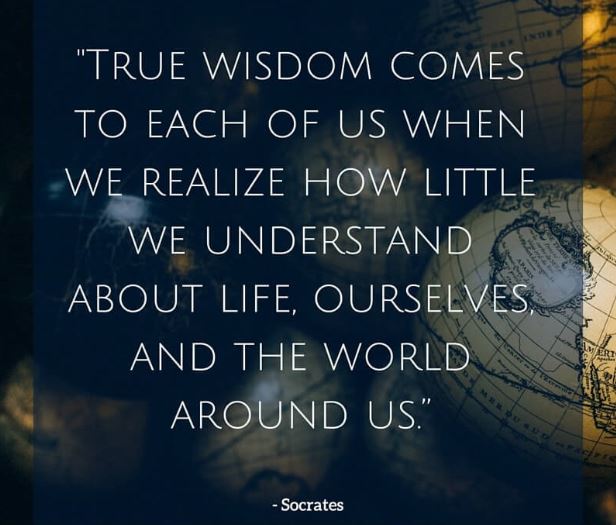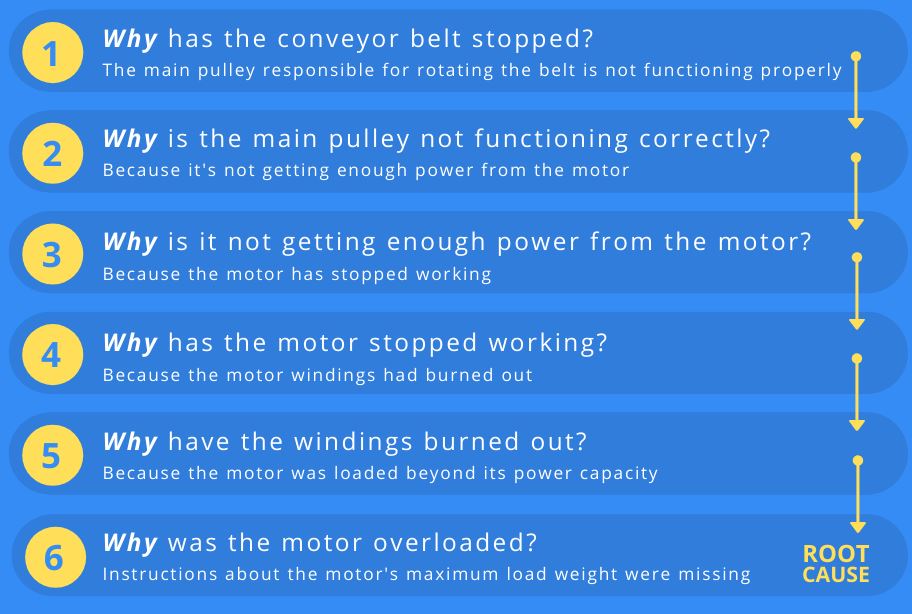First Principles Thinking
Test Assumptions & Find Foundations

What Is First Principles Thinking?
First principles thinking is the act of reducing something down to the most basic parts that you know are true, and using that as your foundation for building up from there.
It involves digging deeper and deeper until you are left with only the foundation truth of a situation.
Aristotle described a first principle as:
"...the first basis from which a thing is known."
First principles thinking removes all assumptions and asks:
"What are we absolutely sure is true, what has been proven?"
In practical terms, it does not mean reducing everything the atomic level, most benefits can be derived by thinking several levels deeper than most people.
Testing Beliefs, Assumptions and Dogma
First principles thinking means testing assumptions, taking things apart and reconstructing
them so that we can cut through the dogma, the group think, and see
things as they are and see what is possible.
Ultimately, when you think it through, anything that is not a law of nature is a belief, a concept based on assumptions. We live in a world based on beliefs and assumptions. For example, we believe that the dollar, the pound, the euro or indeed any currency has value.
But these pieces of metal and paper, these numbers on a screen have no intrinsic value. The value is solely in the shared belief that these things have value.
As Elon Musk explains in the
following video clip, the normal way we conduct our lives is that we
reason by analogy, we reason by comparison with something else that
appears similar, and we do this because it's easier, its less mental
effort than first principles thinking. Reasoning by analogy is a useful and practical shortcut or heuristic, often referred to as a rule of thumb. Frequently, there is neither the time nor the need to engage with first principles thinking, however it is useful, and often essential, when dealing with complexity or trying to solve a problem.
# Frame The Problem Clearly The most important part of solving your problem is defining it: # Socratic Questioning Socratic questioning can be used to draw out first principles
in a systematic manner via rigorous analysis. The late Dr. Richard Paul founder of The Foundation For Critical Thinking, has classified Socratic questions into 6 basic types:
[1] Questions for clarification Why do I think this? What exactly do I think? [2] Questions that probe assumptions How do I know this is true? What if I thought the opposite? [3] Questions that probe reasons and evidence How can I back this up? What are the sources? [4] Questions about viewpoints and perspectives What might others think? How do I know I am correct?
[5] Questions that probe implications and consequences What if I am wrong? What are the consequences if I am? [6] Questions about the question Why did I think that? Was I
correct? What conclusions can I draw from the reasoning process? # The Power Of 5 Whys?
A powerful technique for digging deep into a problem to find the root cause is to ask the question Why? five times. This technique was developed by Sakichi Toyoda, the founder of Toyota Industries. This technique is very simple: You just repeat the question “why?”
after each answer 5 times. The purpose of this is to move beyond
the first explanation, which is often just a byproduct of the problem, and to drill down until you find the ultimate
root cause of the problem.How Does First Principles Thinking Differ From Conventional Thinking?
How Can You Establish First Principles?

====================================================
=====================================================

=====================================================
# Optimize The Function & Ignore The Form
Because of our default tendency for thinking by analogy we focus on form.
We
project the current form forward rather than projecting the function
and thus run into the common roadblock to first principles thinking.
When most people envision the future, they project the current form forward rather than projecting the function forward and abandoning the form.
Old conventions, the ideas you inherit, are presented in forms
and are usually accepted without question and thus form a boundary to creative thinking.
Continuous improvement tends to occur within the boundary set by the original vision.
First principles thinking requires you to drop your adherence to prior forms and focus instead on the function.
Key Questions:
- What are you trying to accomplish?
- What is the functional outcome you are looking to achieve?
Return to: How To Think
LATEST ARTICLES
Master The Season You Are In - The Key to Fulfilling Your Purpose
 To fulfil your purpose, you must first master the season you are in. One of the biggest mistakes you can make in life is focusing all your energy on the next season instead of learning to master the s…
To fulfil your purpose, you must first master the season you are in. One of the biggest mistakes you can make in life is focusing all your energy on the next season instead of learning to master the s…The Inner Weight of Shame - Sustained By Attentional Fixation
 A Mind That Is Continuously Engaged In Self-Surveillance. Shame is one of the heaviest inner burdens a human being can carry. It does not announce itself loudly or demand attention through drama. Inst…
A Mind That Is Continuously Engaged In Self-Surveillance. Shame is one of the heaviest inner burdens a human being can carry. It does not announce itself loudly or demand attention through drama. Inst…Does Prayer Work? The Psychology of Prayer, Meditation and Outcomes
 Reality Is A Complex System Of Countless Interactions - Including Yours. So does prayer work? The problem is that the question itself is usually framed in a way that guarantees confusion. We tend to a…
Reality Is A Complex System Of Countless Interactions - Including Yours. So does prayer work? The problem is that the question itself is usually framed in a way that guarantees confusion. We tend to a…Living in Survival Mode Without Surrendering Mental Authority
Living in Survival Mode Without Surrendering Mental Authority
 Clear Thinking When You’re Just Trying to Stay Afloat. Many people today are overwhelmed because they are living in survival mode - not temporarily, but as a persistent condition of life. For many, th…
Clear Thinking When You’re Just Trying to Stay Afloat. Many people today are overwhelmed because they are living in survival mode - not temporarily, but as a persistent condition of life. For many, th…Manifestation Without Magic: A Practical Model
 Manifestation without magic is not a softer or more intellectual version of popular manifestation culture. It is a different model altogether. Popular manifestation teachings tend to frame reality as…
Manifestation without magic is not a softer or more intellectual version of popular manifestation culture. It is a different model altogether. Popular manifestation teachings tend to frame reality as…Staying Committed When You Can't See Progress - The Psychology of Grit
 Uncertainty Is Not The Absence Of Progress, Only The Absence Of Reassurance. One of the most destabilising experiences in modern life is not failure, but uncertainty and staying committed when you can…
Uncertainty Is Not The Absence Of Progress, Only The Absence Of Reassurance. One of the most destabilising experiences in modern life is not failure, but uncertainty and staying committed when you can…The Battle For Your Mind - How To Win Inner Freedom In A Digital Age Of Distraction
 From External Events to Inner Events. We often think of “events” as things that happen out there: the traffic jam, the rude comment, the delayed email reply. But what truly shapes our experience is wh…
From External Events to Inner Events. We often think of “events” as things that happen out there: the traffic jam, the rude comment, the delayed email reply. But what truly shapes our experience is wh…How to See Your Thoughts Without Becoming the Story
 A Practical Guide to Thought-Awareness. You can spend your life inside the stories of your mind without ever learning how to see your thoughts clearly and objectively. Most of the stuff we tell oursel…
A Practical Guide to Thought-Awareness. You can spend your life inside the stories of your mind without ever learning how to see your thoughts clearly and objectively. Most of the stuff we tell oursel…The Collison Decision Matrix - A Simple Framework for Better Choices
 The Collison Decision Matrix Is A Practical Everyday Thinking Tool. Most of us spend a surprising amount of time worrying about decisions. From small ones such as what to wear, what to eat, what to te…
The Collison Decision Matrix Is A Practical Everyday Thinking Tool. Most of us spend a surprising amount of time worrying about decisions. From small ones such as what to wear, what to eat, what to te…The Power Of Asking The Right Question
 The Power Of Asking The Right Question Lies In The Quest For Insight. To experience the power of asking the right question you must develop the practice of asking questions. The best way to improve th…
The Power Of Asking The Right Question Lies In The Quest For Insight. To experience the power of asking the right question you must develop the practice of asking questions. The best way to improve th…Site Pathways
 Here is a site pathway to help new readers of Zen-Tools navigate the material on this site. Each pathway is based around one of the many key themes covered on this site and contain a 150 word introduc…
Here is a site pathway to help new readers of Zen-Tools navigate the material on this site. Each pathway is based around one of the many key themes covered on this site and contain a 150 word introduc…